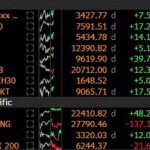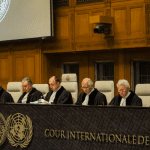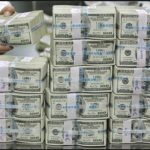The dollar retreated almost half a percent against the yen on Thursday, weighed down by the lack of progress towards a near-term rise in interest rates or tax reforms and public spending that investors hope will reflate the U.S. economy.
In European and Asian sessions dominated by trade in tight ranges, the euro was holding around half a cent above lows hit on Wednesday as another round of French presidential polls showed gains for far-right candidate Marine Le Pen.
Concerns over the shape of politics on both sides of the Atlantic has helped the yen in recent sessions as some investors sought traditional safe havens for capital. It rose 0.4 percent to 112.82 yen per dollar by 1300 GMT.
New U.S. Treasury Secretary Steven Mnuchin said that any steps the administration took were unlikely to have any effect this year and that it planned to deliver a much expected tax overhaul by August.
That was in line with comments by other politicians over the past month, but seemed to some investors to dial back President Trump’s own recent promises.
“While it remains very difficult to pin down a fixed schedule for Trump tax reforms, it now appears anything phenomenal will now be delayed,” said Adam Myers, a currency strategist with Commonwealth Bank in London.
“Such policy drag should – at some stage – open up stock markets to disappointment and limit dollar strength.”
The political nerves that have affected trade in the euro in the past week were still in evidence, driving two-month implied volatility of the currency to the highest in a month as contracts took in the first French election round in April.
But the three-month equivalent was down slightly from post-Brexit vote highs hit on Wednesday, bolstering spot prices for the euro.
A poll showing Le Pen was only 10 points behind conservative Francois Fillon but 22 points behind centrist Emmanuel Macron in the potential second-round run-offs was not enough to knock the single currency backwards.
“What we have seen later yesterday and this morning is some euro strength,” said Karl Steiner, a strategist with SEB in Stockholm.
“It will be interesting to see if the euro continues to be dominated by French politics. That has certainly been the case in the last few days.”
By 1300 GMT, the euro was up 0.21 percent on the day at $1.0570, up half a cent on lows hit in the European morning on Wednesday.
The dollar index, which measures its broader strength against a basket of other currencies, inched lower on the day to 101.13. That compared to a one-month high of 101.76 hit last week.
The big set piece overnight was U.S. Federal Reserve minutes, which while not as hawkish as some in the market had hoped, just about kept a March interest rate hike in play.
The Fed rarely delivers interest rate moves that are not largely priced in by money markets and Fed funds futures show the chances of a rise next month are still only around 20-25 percent. Any move in those expectations can be expected to push the dollar higher after a listless few weeks.
Mnuchin also told the Wall Street Journal that the strong dollar was “a good thing” in the long run, in contrast to a number of comments by officials in Trump’s administration that have weighed on the currency in the past month.










